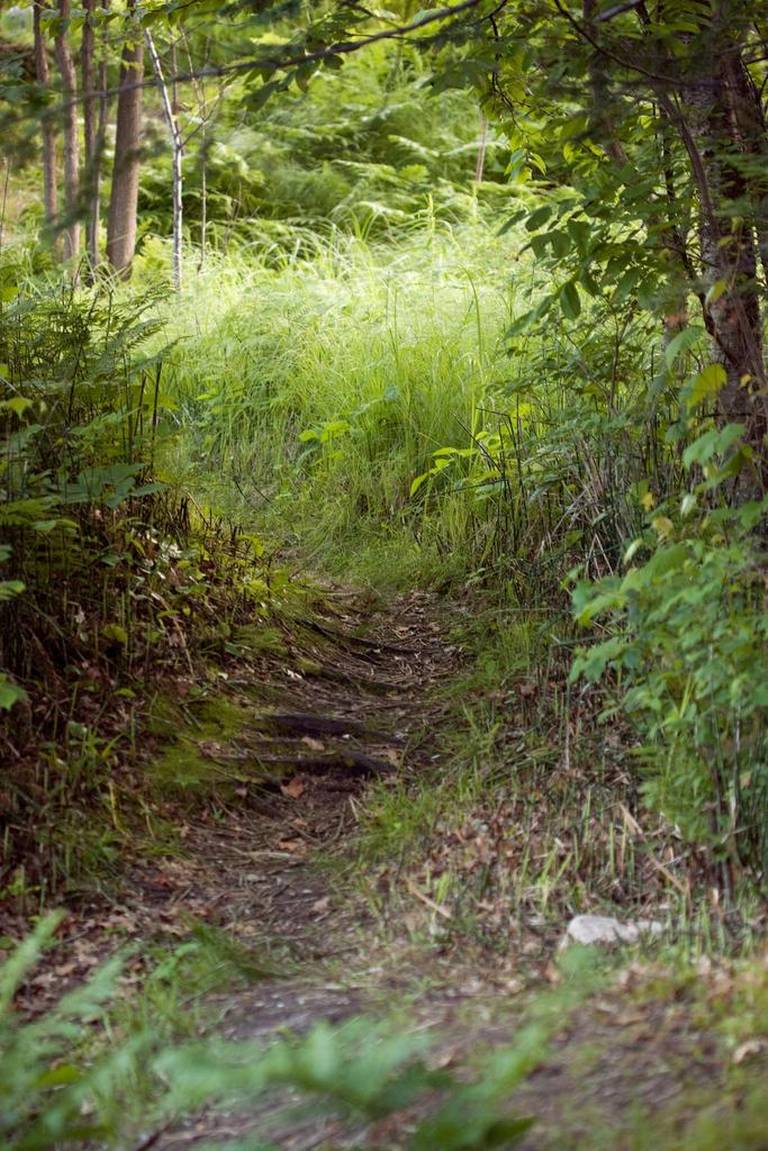Using nature to heal mind and body

BY KENNETH SETZER
As published in the Miami Herald, 3/24/16.
John Muir and Henry David Thoreau knew it. The Japanese call it “forest bathing,” using exposure to nature to heal physical and emotional ailments. Research is backing up what we’ve known intuitively all along: Nature heals.

For millennia, people lived among greenery. Our distant ancestors lived in, or at least among, trees, and our more recent ancestors likely lived in rural areas or on farms. So it only makes sense that we evolved to depend on a daily dose of green — or brown (soil) for that matter, as we will see, whether it’s by working in the garden or going for a walk among trees.
A walk in the woods just feels good. It takes my mind off everyday worries. Walking among plants and trees draws my attention to the present moment, often because insect or bird activity or newly flowering or fruiting plants catch my eye.

I’m also into rocks and flipping them over to see what might live underneath. Bringing a camera adds an additional element; looking for interesting photo opportunities leads my mind away from unhealthy rumination.
The physical exertion of a walk in the woods also leads to a pleasant feeling, a runner’s high of sorts.
And there’s the famous 1984 study of psychologist Roger Ulrich, demonstrating quicker recovery times for hospital patients who had a view of the natural world — even a small patch of trees outside a window or just a picture of a natural scene contributed positively to healing.
Here’s more evidence of nature’s healing powers: Mycobacterium vaccae is a naturally occurring soil bacterium first cultured from cow dung. Among its other properties, exposure to this bacterium has been shown to increase the neurotransmitters serotonin and norepinephrine, which in turn have been linked to controlling mood, including depression and anxiety.
One study even showed M. vaccae improved maze-navigating ability in mice and reduced signs of anxiety (Jeez, even mice are anxious). Indeed cow dung has been used in European folk medicine and Ayurvedic medicine for centuries, but there are more pleasant ways to encounter M. vaccae.
It’s a common soil bacterium it turns out, so toiling in the garden exposes you to it. Soil bacteria in general are more abundant in dirt around plant roots — in the rhizosphere — so gardening and farming will potentially expose the participant to even more M. vaccae.
Phytoncides are like the forests’ air freshener, antimicrobial chemical compounds manufactured by many plants and trees that evaporate into the atmosphere. One you may be familiar with is pinene, an ingredient in turpentine; it is employed by pines and other conifers to repel insects. Some phytoncide studies claim they increase human natural killer cells, which respond to viruses, tumors, and cancers.
Stopping to smell the roses may literally be beneficial to our health.
More evidence has been discovered that plants use these compounds as communication, not just defense. When phytoncides are suffused into the air, other plants detect the compounds and can “know” that an attack is imminent and thus preemptively produce their own defenses.
Another such defense is tannin, which produces the bitter taste of some fruits and vegetables. Tannin is found in a wide variety of plants where it repels insects; we commonly imbibe tannin and its possible antioxidant qualities from coffee, tea and red wine.
Finally, the Japanese have combined these benefits and more in the concept of shinrin yoku, or “forest bathing.” It embraces employing all the senses outdoors by touching and smelling plants, listening to animals and whispering pines, really seeing what’s around us. It’s kind of like the “living in the present moment” concept of meditation. It’s free, available to nearly everyone and all you need is a little nature. Even a houseplant helps.
All this aside, you know that an encounter with nature, whether by taking a walk, gardening or otherwise, leaves you feeling good, or at least better. Does it really matter how?
